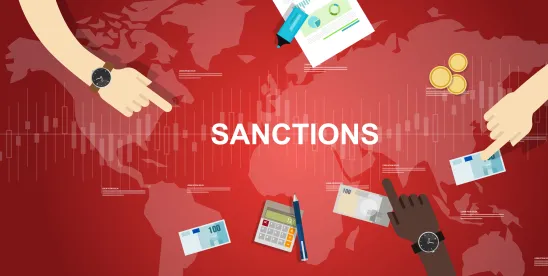On Jan. 10, 2025, the U.S. Department of Treasury announced several new types of sanctions that will affect U.S. and global service providers to the Russian energy sector.
The first of these sanctions will prohibit U.S. persons, including U.S. persons located abroad, from providing petroleum services to any person located in Russia. The Treasury Department's Office of Foreign Assets Control (OFAC) plans to issue regulations defining “petroleum services,” but they are likely to include services related to exploration, drilling, well completion, production, refining, processing, storage, maintenance, transportation, purchase, acquisition, testing, inspection, transfer, sale, trade, distribution, or marketing of crude oil and petroleum products.
These sanctions will enter into effect on Feb. 27, 2025, so U.S. persons have a limited time to wind down affected transactions.
In addition, the U.S. Secretary of the Treasury issued a determination under Executive Order 14024 that authorizes imposing economic sanctions on any person – whether U.S. or non-U.S. – that is subsequently determined to be operating in the Russian energy sector. OFAC plans to define the “energy sector of the Russian Federation economy” to encompass not just petroleum products, but also natural gas, biofuels, coal, nuclear and other renewable energy.
This determination has broad extraterritorial implications, because it exposes non-U.S. entities to potential sanctions. As a preview, OFAC simultaneously used the determination to impose sanctions on Russia's major oil companies, Gazprom Neft and Surgutneftegas. However, the determination could be used to impose sanctions on entities from any country that operate in the Russian energy sector.
“The United States is taking sweeping action against Russia’s key source of revenue for funding its brutal and illegal war against Ukraine . . . With today’s actions, we are ratcheting up the sanctions risk associated with Russia’s oil trade, including shipping and financial facilitation in support of Russia’s oil exports.”




 />i
/>i
